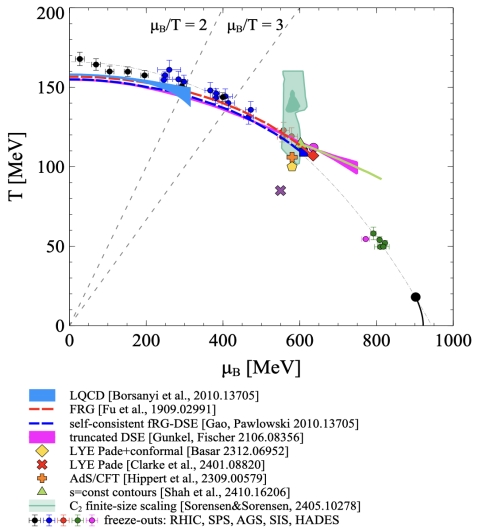Event ID: INT-26-95W
Note: This is an in-person workshop. A $55.00 registration fee will apply. Please refer to your confirmation email for details and payment link.
Overview
Event ID: INT-26-95W
Note: This is an in-person workshop. A $55.00 registration fee will apply. Please refer to your confirmation email for details and payment link.
Overview
Event ID: INT-25-3b
Note: This is an in-person program.
OVERVIEW
INT-25-3a

Event ID: INT-25-94W
Note to applicants: This is a "hybrid" workshop, meaning there will be a combination of virtual and in-person participants. In the COMMENTS section of the Application Form, please write [In-person], [Virtual], or [Either] to reflect your preferred mode of attendance.
OVERVIEW
Event ID: INT-25-2b
OVERVIEW
Event ID: INT-25-2a
Embedded Workshop dates: June 23 - 27 (Note: For workshop participants, there is a required $75 registration fee).
OVERVIEW
Event ID: INT-25-93W
Note: This is an in-person workshop.
OVERVIEW
The Electron-Ion Collider (EIC) to be constructed at Brookhaven National Laboratory over the coming decade will be the most powerful tool thus far for exploring the inner structure of matter and the forces that hold matter together. It will provide images of protons and nuclei at their deepest level with unprecedented precision. The EIC construction and planning of the detector ePIC are now well underway.
Image Credit: This work was a collaborative effort of Rolf Ent (Physicist, Jefferson Lab) and Richard Milner (Physicist, MIT). Proton animations by James LaPlante (Animator, Sputnik Animation). Edited by Alexander Higginbottom (MIT Video Productions). Film consultants Christopher Boebel and Joe McMaster (Film Producers, MIT).
Event ID: INT-25-1
Note: This is an in-person program. The talks will not be recorded.
OVERVIEW
The 2025 NP3M Collaboration Meeting will be held in-person at the Institute for Nuclear Theory at the University of Washington's Seattle campus March 24-25, 2025.
This meeting is sponsored by NP3M and NSF.
Sponsored by the InQubator for Quantum Simulation.
Sponsored by the InQubator for Quantum Simulation.
This workshop has been rescheduled to take place in Berkeley, CA from July 26, 2022 to July 29, 2022.
Event has been postponed.
Sponsored by the InQubator for Quantum Simulation.
The workshop addressed questions related to hadronization and its multiple manifestations in high-energy scattering processes. Hadronization is intrinsically connected to fundamental properties of QCD, such as confinement and the dynamical breaking of the chiral symmetry. Moreover, it plays an important role in the context of hadron and nuclear structure studies. In particular, a detailed understanding of hadronization is vital for the optimal preparation of the next generation of experiments, such as the Electron-Ion Collider.
Goal
The aim of this school is to introduce students to applications of lattice gauge theory in strongly interacting systems, using a modern teaching style to enhance student learning together with lectures describing the latest advances in the field.
School Topics
Tensor network methods are rapidly developing and evolving in many areas of quantum physics. They offer new ways of computing the properties of strongly interacting quantum matter. They provide new perspectives on theories with sign problems and/or significant entanglement. Tensor network ideas are also closely related to emerging efforts to design algorithms suitable for current and future quantum computing hardware or quantum simulation experiments. This program will bring together experts from a range of scientific fields with a common interest in these new methods.
A sound theoretical description of nuclear forces is pivotal for understanding many important physical observables over a wide range of energy scales and densities, from few-body physics to nuclear-structure observables to astrophysical phenomena. A systematic and precise theory for nuclear Hamiltonians is crucial to providing accurate predictions for these systems with controlled theoretical uncertainties, and to enable meaningful comparisons of theoretical calculations with experimental data and astrophysical observations.
Presentations that appear in the proceedings of workshops and programs on the INT website are those given by speakers at these meetings. The choice of presentations is at the discretion of the organizers of such meetings. There is no endorsement of the claims made in such presentations, implicit or explicit, by the organizers of the workshops and programs or by the management of the INT.
